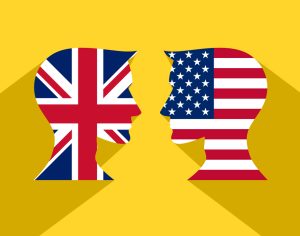Arne Mielken argues that UK companies shouldn’t stop doing business with the EU just because we began enforcing full customs controls at the start of 2022. And neither should owners get frustrated by the recent changes, he says.’
If last year wasn’t bad enough, 2022 has started with a new headache for importers and exporters. Since January 1st, full customs controls between the European Union (not including Ireland) and Great Britain (GB) have taken effect. On the face of it, this appears to be more red tape and bureaucracy which the UK’s entrepreneurs and business owners have to deal with. These are the same people and companies who have already been heavily impacted by Covid-19.
However, we should not assume that this is all doom and gloom. Like all nations, there are now customs controls at all ports and border locations. This means, for business owners, goods may be directed to an Inland Border Facility (IBF). Inland border facilities are Government sites where customs and document checks are carried out away from traditional ports.
A number of these IBFs were made operational at the start of 2021, while additional potential sites are currently being explored. This means longer delays for goods, along with additional costs. However, this is nothing new for those importing goods from further afield than the EU, such as the United States, Australia or China etc.
Everything to declare
There is now a requirement for full customs import declarations on all goods ‘ except those arriving from the island of Ireland. This is usually carried out by a freight forwarding agent or a company hired by individuals or corporations to organise shipment of goods. These ‘forwarders’ do not physically move the goods, but are experts involved in the logistics of transporting imports and exports.
‘Forwarders’ generate a reference number for items that hauliers’ use when moving goods in or out of the country. But before they can do this, ‘forwarders’ need to be aware of certain information that includes commodity codes, origin of goods, value and a procedure code.
GVMS
Some ports in the UK, typically those with a limited amount of space ‘ such as Dover ‘ benefit from the existence of a ‘pre-clearing system’. These are called a Goods Vehicle Movement Service (GVMS). A GVMS is used by hauliers to notify officials that a customs declaration has been both lodged and accepted. Hauliers need to register with a GVMS to generate a Goods Movement Reference (GMR). Without a GMR, they are not permitted to travel by ferry between the EU and UK.
Claiming zero customs duty
Remember that importers, or their representatives, are able to reduce customs duty to zero, providing their goods satisfy the laws relating to ‘rules of origin’. But they still need to claim for this preference, it doesn’t happen automatically. All steps must be correctly followed when a supplier makes a declaration to prove the origin of the goods ‘ whether it be the UK or EU.
Northern Ireland
If you’re a business owner in Northern Ireland or the Republic of Ireland, you can rejoice. The customs arrangements that were already in place, for goods moving to and from Great Britain, have been extended while discussions between the EU and UK continue.
The EU and UK are yet to agree on what is commonly referred to as the ‘Northern Ireland Protocol’ (NIP). These talks are ongoing which means there is no change to current procedures. The NIP is part of the overall Brexit Withdrawal Agreement and is still being thrashed out.
Conclusion: Don’t stop now
Border controls are a day-to-day necessity for all trade being conducted between nations. They are not new, so any UK business currently trading outside of the EU will have faced such procedures for years. The only new dimension, following Brexit, is that this centuries’ old activity has been extended to include European countries.
More than ever, communication, goodwill and collaboration will be required on all sides. Entrepreneurs will need to get up to speed quickly on any new border controls they face, and stop getting angry over what they describe as ‘red tape’. The sooner they learn to navigate these new rules effectively and efficiently the better. Once this has been achieved, goods can start to flow easily between the EU and GB again. Don’t allow border controls to ruin your business ‘ and life.
“
Share via:








































